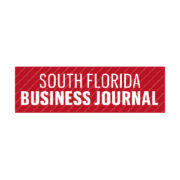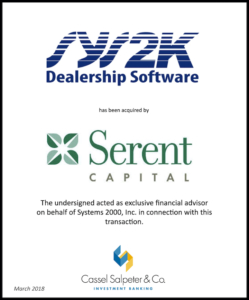Wall Street Braces for a Rate Hike
By Tirthankar Chakraborty
Timing a Fed rate hike is no doubt tricky. But if you ask the market participants, they are almost certain that Jerome Powell led Federal Reserve will increase its benchmark rate by 0.25%, at the conclusion of the FOMC meeting on Mar 21. They further anticipate the Fed to continue their hawkish stance this year, on the back of a healthy labor market and steady rise in inflation.
With the Fed set to raise rates for the first time this year, expect financials, technology and home improvement suppliers to benefit. Home builders and utility players, on the other hand, could lose from the Fed’s rate decision.
Fed Set to Hike Rates for the First Time in 2018
At the conclusion of the FOMC meeting, the Fed will issue a rate decision. Market pundits consider a quarter-percentage point rate hike a near- certainty. The futures market is already indicating 100% chance of a rate hike, culminating into the sixth rate increase since December 2015. Market participants also widely expect the Fed to project four rate hikes this year. So far, a maximum of three rate hikes are expected for the year.
But why we are expecting a hawkish Fed? This is because the current economic backdrop paints a rosy picture, especially, when you consider steady rise in wages, record low unemployment rate and upbeat consumer confidence levels. The Trump administration, in the meantime, has decided to add extra stimulus in the form of tax cuts and deregulations.
Perhaps the even more crucial factor for the Fed to hike rates is hotter-than- expected signs of inflation. Recent signs indicate that inflation is tilting toward the central bank’s 2% annual target. Needless to say, the near-term inflation expectations have climbed this month to the highest level in three years. Thus, the Fed is likely to reiterate its January’s statement that inflation “will move up this year.”
Winners & Losers in a Rising Rate Environment
With an overwhelming majority of observers seeing an imminent rate hike with more to follow this year, certain sectors stand to gain, while some will suffer.
Winners: Asset-Sensitive Banks
Banks are definitely the go-to rate trade. As a general rule, higher interest rates will boost bank profits as they increase the spread between what banks earn by funding longer-term assets, such as loans, with shorter-term liabilities.
National banks like the Bank of America Corporation BAC are very much rate- sensitive and have consistently seen earnings jump from a quarter-point rate hike. In the year-to-date period, the SPDR S&P Bank ETF (KBE) generated steady returns of 4.2% on increasing expectations of a rate hike this month.
Winners: Insurers
Very few companies are rooting for a rate hike as much as those from the insurance industry. And why not? The relationship between interest rates and insurance companies is linear and straightforward, meaning the higher the rate, the greater the growth.
Insurers derive their investment income from investing premiums, which are received from policyholders in corporate and government bonds. Yields and coupons on these bonds rise in response to a rise in Fed fund rates and bank interest rates. This enables life insurers to invest their premiums at higher yields and earn more investment income, expanding their profit margins. Not only investment income, which is an important component of insurers’ top line, annuity sales should also benefit from a higher rate environment.
As of the last filing, the top three holdings of the SPDR S&P Insurance ETF (KIE), Validus Holdings, Ltd. VR , XL Group Ltd XL and Everest Re Group, Ltd. RE have soared 44.6%, 58.1% and 18.2%, respectively, so far this year on rate hike expectations.
Winners: Asset Managers
Brokerage firms and asset managers advantage immensely from a rising rate environment since an increase in rates generally concurs during periods of economic strength and upbeat investor sentiments.
Notably, a wealth management firm like The Charles
Schwab Corporation SCHW has said time and again that each quarter point increase in rates generally adds to interest revenue, much of which flows directly to pre-tax profits.
Winners: Technology & Home Improvement
Other than the broader financial sector, technology firms also stand to gain from a rate hike. Interest rates correlate with an economy that is getting stronger day by day. And a stronger economy could easily boost the bottom lines of smartphone makers like Apple Inc. AAPL and Samsung.
Rising rates may also compel would-be home buyers to stop searching for new houses and instead look for improving their existing ones. Sesha Dhanyamraju, CEO of Digital Risk added that “remodelers and home- improvement suppliers benefit from a rising-rate scenario.” Thus, home improvement majors Lowe’s Cos. L and Home Depot HD stand to gain the most.
Losers: Home Construction
But, with the Fed expected to hike rates, the average American will bear the brunt of higher borrowing costs. This is surely a dampener to real estate activities.
James Cassel, chairman and co-founder of the investment banking firm Cassel Salpeter in Miami added that if rate hike happens, losers might include “construction-related businesses, like homebuilders.”
Losers: Utilities
Investing in utilities won’t be a good idea in a rising interest rate scenario. Utilities are capital intensive business and the funds generated from internal sources are not always sufficient to meet their requirements. Hence, these companies have high level of debt loads. Low interest rates will help them pay off debts and book profits.
But higher interest rates along with an increase in the debt level, for that matter a steep debt/equity ratio, impact the credit ratings of these utility operators. If the credit ratings go down, a company will find it difficult to borrow funds from the markets at reasonable rates, leading to a rise in cost of operations.
The industry’s bellwether ETF, Utilities Select Sector SPDR (XLU), has yielded a negative return of 4.9% in the year-to-date period on rate hike concerns.
Will You Make a Fortune on the Shift to Electric Cars?
Here’s another stock idea to consider. Much like petroleum 150 years ago, lithium power may soon shake the world, creating millionaires and reshaping geo-politics. Soon electric vehicles (EVs) may be cheaper than gas guzzlers. Some are already reaching 265 miles on a single charge.
With battery prices plummeting and charging stations set to multiply, one company stands out as the #1 stock to buy according to Zacks research.
It’s not the one you think.
Click here to view the original article.









